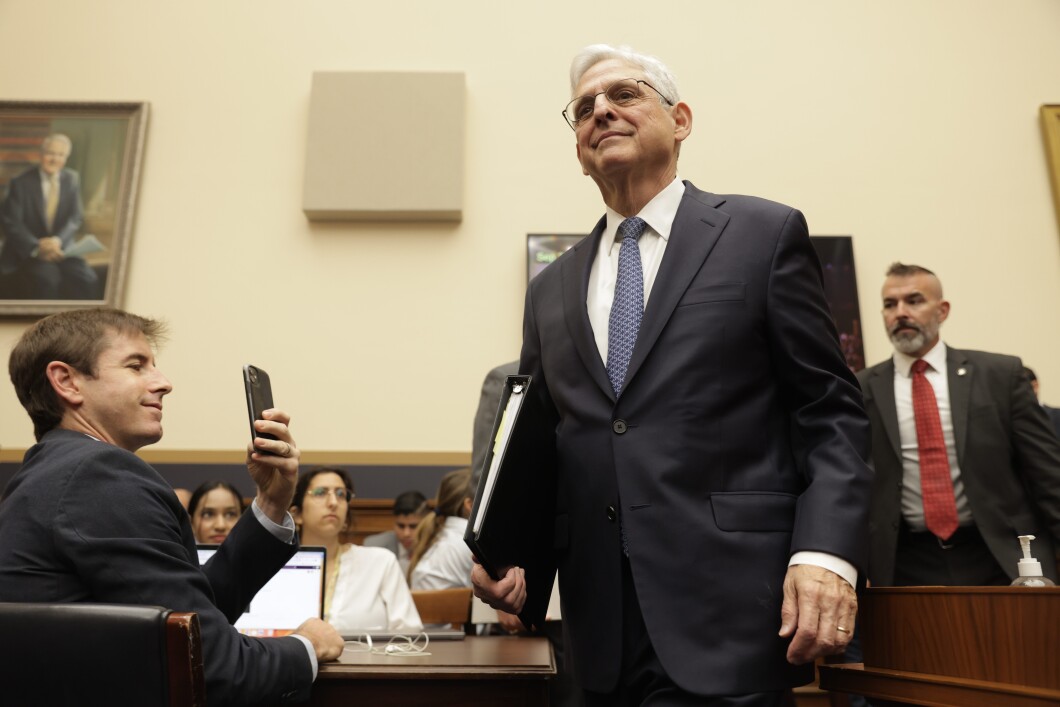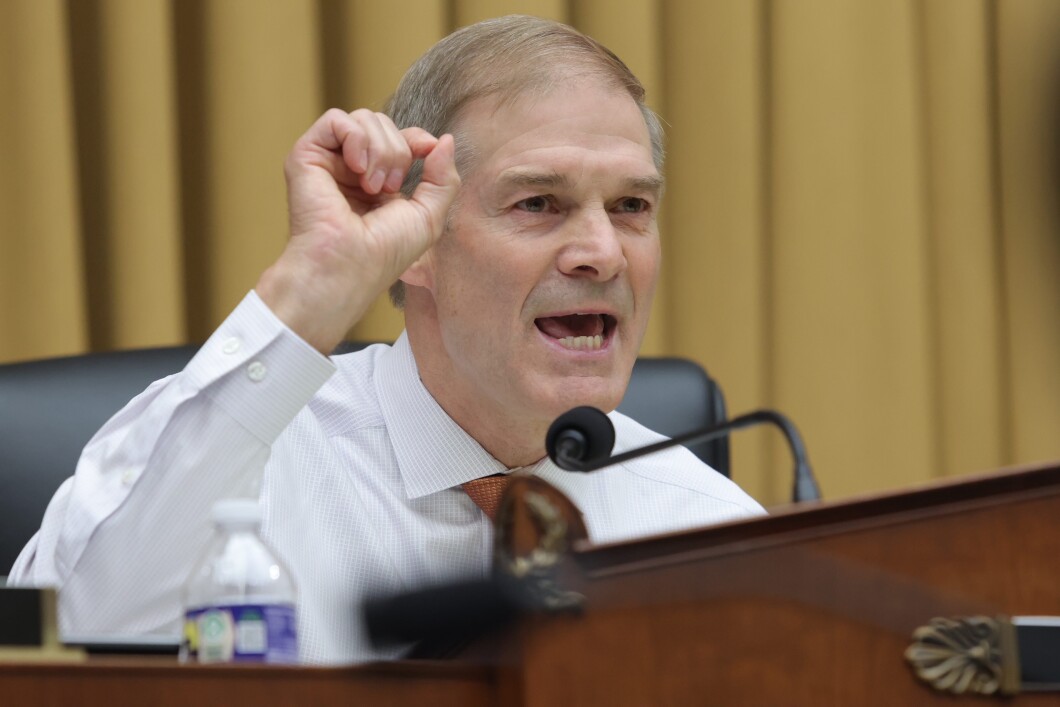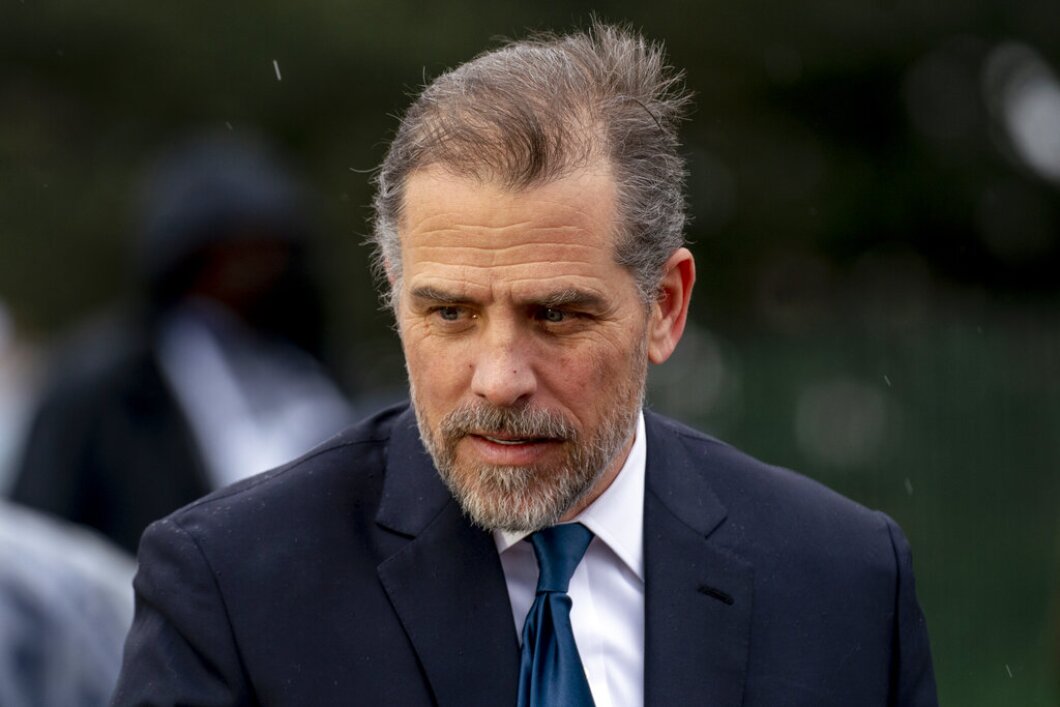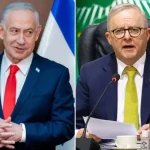
Attorney General Merrick Garland’s testimony to the House Judiciary Committee on Wednesday left Republicans unsatisfied and failed to clarify most of the questions surrounding the Justice Department’s high-profile investigation of Hunter Biden.
Garland spent hours on defense as GOP lawmakers grilled him about the details of special counsel David Weiss’s investigation, the now-withdrawn plea deal offered to Hunter Biden in June, and the Justice Department’s handling of Jan. 6 defendants.
SEVEN UNANSWERED QUESTIONS FOR MERRICK GARLAND ABOUT THE BIDEN INVESTIGATIONS
Here are six takeaways from his hearing.
CONTRADICTIONS CONTINUE ON WEISS AUTHORITY
Garland offered conflicting answers on whether Weiss had full authority to advance the Hunter Biden investigation before his appointment as special counsel last month.
Asked repeatedly about testimony from two IRS whistleblowers and two FBI agents, all of whom said Weiss had to seek permission from Joe Biden-appointed U.S. attorneys to charge Hunter Biden outside Delaware, Garland claimed Weiss could have overcome those roadblocks by requesting a special designation from the Justice Department.
But that testimony seemingly contradicted Garland’s previous assertions that Weiss always had the authority to charge Hunter Biden in whatever jurisdiction he wanted.

Garland avoided confirming or denying specific details about whether U.S. attorneys in Washington, D.C., and the Central District of California blocked Weiss from bringing charges in their districts.
“No one had the authority to turn him down,” Garland said of Weiss. “They could refuse to partner with him.”
The attorney general did not explain how those two statements were different.
He did note that Weiss could have sought a special waiver that would have allowed him to indict Hunter Biden outside his district.
However, Garland’s public position for months was not that Weiss had the option of seeking ultimate authority in the case but that Weiss had it all along.
KNOW-NOTHING APPROACH TO HUNTER BIDEN
Garland claimed not to know almost anything about how the Hunter Biden investigation has unfolded, although he also claimed to know definitively that Weiss never faced any roadblocks in the case.
“I have intentionally not involved myself in the facts of the case,” Garland said.
Garland issued categorical denials that Weiss ever encountered resistance to his pursuit of charges against Hunter Biden in Washington, D.C., and California.
But Garland pleaded ignorance about virtually every other element of how Weiss has conducted the investigation, including why the statute of limitations was allowed to expire for alleged offenses related to Hunter Biden’s work for the Ukrainian energy company Burisma.
Weiss was not a special counsel for the first four years of the investigation, and therefore his work would have been subject to oversight from the attorney general for most of the investigation. However, Garland suggested he took pains to avoid knowing anything about the investigation.
WEISS’S TESTIMONY GOT MORE IMPORTANT
Garland said on multiple occasions that Weiss alone could answer lawmakers’ questions about how the Hunter Biden investigation unfolded.
That included questions about the plea deal Hunter Biden received, specific actions his prosecutors are said to have taken, and the length of time Weiss took to request special counsel status.
The Justice Department had initially offered to make Weiss available for a public hearing as soon as Sept. 27. The agency’s offer came before Weiss received his special counsel appointment, and that shift had cast doubt on whether he would still appear before Congress.

House Judiciary Committee members also signaled they were more interested in a closed-door interview with Weiss than in a public hearing.
House Judiciary Committee Chairman Jim Jordan (R-OH) asked Weiss this week to appear for a closed-door interview and a public hearing in mid-October.
But Garland suggested during his hearing that Weiss would not be made available for full testimony until after he filed his final report on the Hunter Biden matter, just as then-special counsel Robert Mueller did not appear before Congress until after he filed his final report in the Russian collusion investigation.
HEAVY RELIANCE ON WEISS LETTERS
Garland frequently cited a trio of letters Weiss had written to Congress this year as proof that Weiss had personally asserted his independence in the Hunter Biden investigation.
The attorney general repeatedly referred lawmakers back to the letters when they asked questions about whether Weiss had to ask other U.S. attorneys for permission to charge Hunter Biden.
But emails released recently in a Freedom of Information Act lawsuit suggest Weiss may not have actually written his own responses to Congress.
Heavily redacted emails obtained last month to the Heritage Foundation showed that the Justice Department took the lead in drafting a response to a letter from Congress that was addressed to Weiss last year.
The three letters Garland mentioned on Wednesday also contained contradictory claims, although Garland disputed that when pressed by lawmakers.
“They are all consistent with each other,” Garland said of the letters.
In a June 7 letter to Congress, Weiss stated that he had “ultimate authority over this matter, including responsibility for deciding where, when and whether to file charges.” In a June 30 letter, he went on to state that “my charging authority is geographically limited to my home district.”
Then, in a July 10 letter, Weiss acknowledged that he’d had high-level discussions about potentially receiving a special attorney appointment from the Justice Department in order to charge Hunter Biden in an outside jurisdiction without the cooperation of another U.S. attorney.
Garland’s insistence that lawmakers consult the three Weiss letters was notable given the evidence that Weiss may not have written them himself and the conflicting claims within them.
HUNTER BIDEN INVESTIGATION ONGOING, UNCLEAR WHY
While Garland dodged a handful of questions about the Hunter Biden investigation by citing its open nature, he mostly avoided discussing the fact that the investigation is ongoing, instead citing a policy of protecting internal deliberations as a reason why he couldn’t answer most questions.
Several GOP committee members wanted to know why the investigation, which began in 2018, still hadn’t come to a conclusion.
“After five years, what stage are we in?” Jordan asked Garland, who declined to answer.

Garland also provided no explanation as to why prosecutors allowed the statute of limitations to expire for work Hunter Biden performed for the Ukrainian energy company Burisma in 2014 and 2015.
IRS whistleblowers said that by the spring of last year, investigators had compiled enough evidence to bring at least some tax-related charges for activity that occurred at that time but noted that delay tactics from the Justice Department robbed the team of its ability to indict Hunter Biden before the statute ran out.
No explanation was given for why the investigation remains ongoing more than a year after the whistleblowers said the case was effectively complete.
IMPEACHMENT ABSENT
Despite the interest in the involvement of President Joe Biden in his son’s business dealings, much of the questioning from House Republicans focused on Weiss and Hunter Biden, not his father.
CLICK HERE TO READ MORE FROM THE WASHINGTON EXAMINER
In fact, discussion of impeachment was largely absent from the hearing.
One day before Garland’s appearance, the House Oversight Committee announced that it planned to hold its first impeachment hearing next week.





